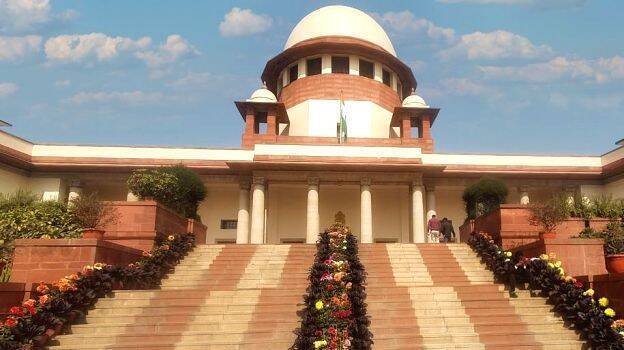

NEW DELHI: The amicus curiae in the Supreme Court said that people's representatives convicted in criminal cases should be barred from contesting elections for life instead of six years. A bench of Chief Justice DY Chandrachud will consider the report, which has far-reaching implications for national politics, on Friday. This is while the Surat Additional Sessions Court is going to hear Rahul Gandhi's appeal against the two-year jail term for the Modi remark. Elections to the Lok Sabha and five legislative assemblies are also approaching.
Advocate Vijay Hansaria, the amicus curiae appointed by the Supreme Court, submitted the report in support of the public interest petition filed by BJP leader Ashwini Kumar Upadhyay in 2016, demanding a life ban on the convicted people's representatives. The petition was filed demanding speedy disposal of criminal cases involving representatives of the people and questioning the constitutionality of the provision in the Representation of the People Act, which fixes the ban against those convicted to six years.
Parliament / Legislature membership is a symbol of people's sovereignty. Such persons should be barred from holding office for life if they become morally depraved through crimes. According to the report, the provision in the Representation of the People Act, which bans convicted representatives for six years, is arbitrary and a violation of equality under Article 14 of the Constitution.
Arguments of amicus curiae
The Lokpal/Lokayukta and Central Vigilance Commission Acts provide for removal and life ban for persons appointed to those posts if convicted of offenses. People's representatives have a more sacred status than them. Under the Representation of the People Act, convicted members have to face only a six-year ban. This means that people's representatives, who made laws banning a person for life, can be banned only for six years in similar circumstances. They themselves made that law. It is arbitrary and a flagrant violation of the equality guaranteed by the Constitution.
According to Section 8 of the Representation of the People Act, crimes are divided into several categories based on their seriousness. However, the period of ban remains the same for every offense. Even those convicted of heinous crimes like rape, corruption, drug trafficking, and terrorism will have the opportunity to contest elections and re-join the legislatures six years after their release.